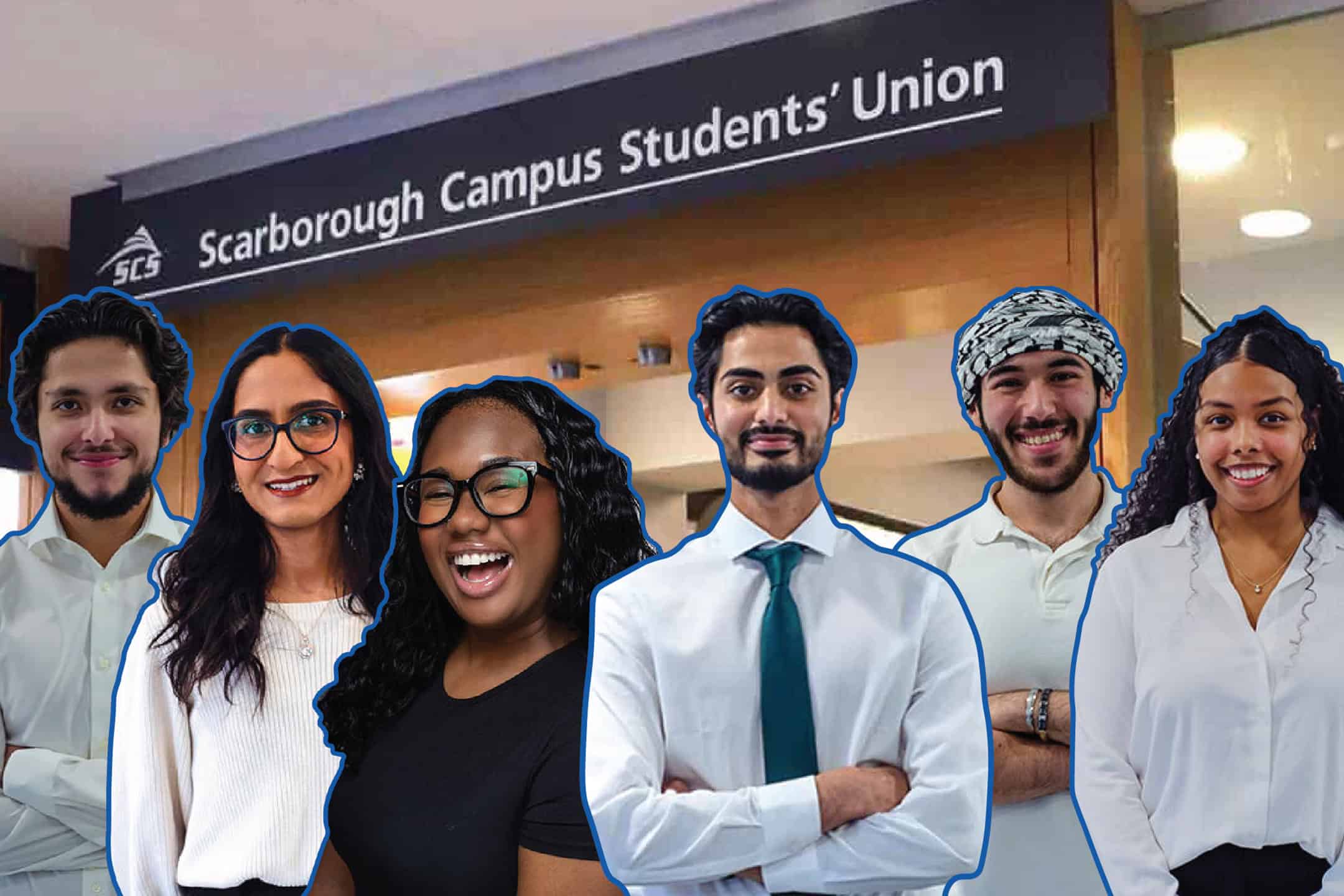On May 31, the Scarborough Campus Students’ Union (SCSU) held its first Board of Directors (BOD) meeting for the 2024–2025 academic school year.
Union executives presented updates on advocacy for Palestine and implementing more experiential learning opportunities across departments.
Advocating for Palestine
SCSU President Hunain Sindhu began the meeting by providing updates on the SCSU’s recent actions in solidarity with Palestine.
Sindhu highlighted his participation in disrupting a Campus Affairs Council meeting at UTSC on May 6. He expressed hopes to pressure the UTSC administration into releasing a statement of solidarity with the student encampment at the UTSG campus.
Students set up the encampment in King’s College Circle on May 2 to call on U of T to disclose its financial holdings, divest from companies supplying the Israeli military with weapons and other services, and cut ties with Israeli academic institutions.
Along with Zanira Manesiya, vice-president academics and university affairs, Sindhu recounted a Governing Council meeting held at UTM on May 16. Sindhu claims that he and Manesiya were refused entry after travelling to UTM to attend the meeting they had registered for.
“Upon arrival, we signed in to attend the meeting but to our surprise, we faced repeated refusals when attempting to enter,” he wrote. “Understanding that an in camera session was called, we patiently waited to be let in, which quickly turned into two hours.”
Sindhu claimed they were soon told that no one was being let in at all. In an email to The Varsity, Sindhu wrote that he believes they were denied entry because they were wearing keffiyehs, which Campus Safety might have associated with an ongoing protest outside of the building.
“Astonishingly, we observed two individuals being allowed entry shortly thereafter, highlighting a clear inconsistency and discriminatory practice,” Sindhu wrote.
He later sent an email to the Governing Council expressing the SCSU’s frustration at being denied entry. The executive update, where Sindhu noted the events, was approved as a motion during the union’s BOD meeting.
In an email to The Varsity, the Governing Council’s Secretary Sheree Drummond stated that, “Only guests who were presenting on agenda items or were there to answer members’ questions were admitted to the open session of the May 16 Governing Council meeting.”
“This decision was taken to allow the meeting to proceed without disruption after a group of protesters gathered outside the UTM Council Chambers during the in camera (i.e. confidential, members-only) session at the beginning of the meeting,” she wrote. “We regret the inconvenience and disappointment this situation caused some guests who had pre-registered to attend the open session, including those who had travelled from other campuses.”
Drummond also mentioned that the open session of the meeting was live-streamed on YouTube and both the agenda package and report are publicly available on the Governing Council’s website.
Experiential learning
Manesiya also provided an update on communications with the UTSC administration to increase experiential learning opportunities for students who are not in co-op programs. The motion to present the update was approved unanimously by the board.
She highlighted a new focus on integrated opportunities, such as co-op placement courses and field trips, so that students are able to see what options are open to them post-graduation. The motion comes after the Government of Ontario listed at least one experiential learning experience for every graduating student as one of the 10 metrics to assess a post-secondary institution’s performance and to determine its funding.
Multiple BOD members expressed a desire to see such experiences within their departments. “I want people to know their degree isn’t useless like the stereotypes say,” said Kira Jensen, director of the Department of Philosophy at UTSC.
Some members also raised questions about improving existing opportunities for co-op students.
Christine Villa, director of the Department of English at UTSC, said they want to see an increase in the number of co-op positions that are available. Sabine Mohamed, director of the Department of Computer and Mathematical Sciences at UTSC, raised the question of whether students are gaining the experiences and skills they desire from current co-op positions.
Manesiya said that the UTSU’s conversations with the administration are ongoing and that students are encouraged to discuss their concerns with the UTSC co-op office. She also expressed her intention to align the qualification for good academic standing, currently a CGPA of 1.6 at UTSC, with that of 1.5 at the UTSG and UTM campuses.



No comments to display.